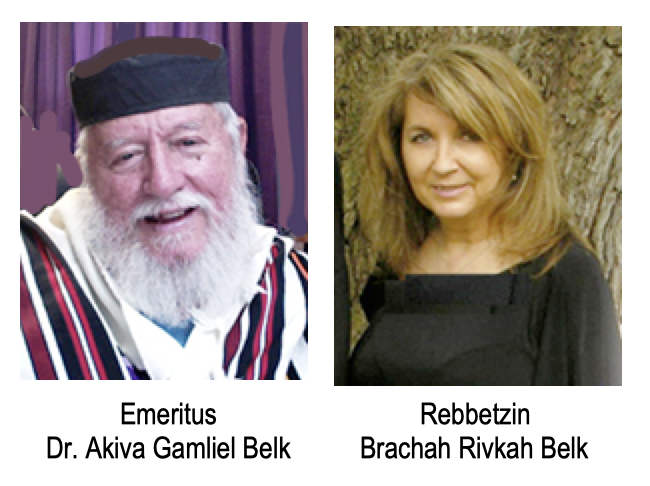Pleasant Words
Pleasant Words
Dear family and friends, So many things are happening on Rosh Ha Shannah that it may feel overwhelming. So let’s focus on two activities associated with Rosh Ha Shanah that we are acquainted with. Let’s focus on an Observance each of us is acquainted with. Genesis 21 begins with the words, ‘The Lord remembered Sarah as he had said [at the previous Pesach / Passover].’ What did the Lord say? He informed Abraham that Sarah would have a son at this time next year. See — Genesis 18.10 Now, we should remember that Abraham was 99 years old and his wife Sarah was 89 years old on that particular Rosh Ha Shanah. Something miraculous happened. Sarahs youth return to her. Abraham and Sarah were drawn together. They enjoyed a sexual encounter resulting in Isaac’s conception. They were not burdened with endless prayers even though prayer is essential!! We can only imagine the exact details that culminated in the birth of Isaac.
Each of us has, at one time or another, experienced the warmth of a kind act. We know how good kindness feels. Let’s think back to when someone did something for us that made us feel so good. Loving-kindness has many shapes and forms that make others feel so incredibly good. Each of us possesses the power to be kind. Solomon wrote:
Proverbs 16.24
Pleasant words אִמְרֵי־נֹעַם are like a honeycomb, sweet to the soul, and health to the bones.
I intend to show mystically that a great deal of respect must exist between the wife and the husband. One should be careful to speak pleasant words. Our words should bring sweetness to the soul and be rich with Torah. Our words should uplift, restore and bring health.
אִמְרֵי־נֹעַם Ee Mih Ray – Noh Ahm – ‘Pleasant Words’
Pleasant words represent virtue. Virtue is behavior that shows high moral standards of goodness and decency. Being virtuous requires us to respect others. Sweet talk is cheap and sometimes disgusting. Solomon points to the foundation behind ‘pleasant words.’ Solomon is saying the one who is intelligent controls their words.
From time to time, one may feel irritable and grumpy. Sometimes things don’t go the way one needs or wants. One may spew a few naughty words. Perhaps someone does something to us, and we retaliate with a curse. Each of us knows what it feels like to be snapped at, criticized, the brunt of another’s unhappiness. These are not pleasant words.
We know the difference between pleasant words and naughty words. Each of us is acquainted with attitudes and words that cause pain. We do not need to be a Rabbi or a Torah Teacher to understand Solomon’s point.
If one is looking for a husband or wife, do you think they would look for a crude nasty-mouthed person? Do you think they would look for a person with anger and abuse issues? An unsophisticated nasty mouthed person is revolting and has an abrasive, toxic issue.
May I suggest that those looking for a mate look for a gentle, kind, warm-hearted loving, tender, and understanding individual who speaks pleasant words? Even though many of us are not looking for a mate, we should strive to be this type of individual. That should be our goal.
We understand that it is the foundation behind what we say. It is good to uplift others with kind words and deeds and control our emotions, feelings, and attitudes when communicating with others. We do not want to be a source of pain or hurt.
Just as Solomon said, ‘pleasant words are like a honeycomb, sweet to the soul, and health to the bones.’ Pleasant words attract us if actions support them. They are like honey to the soul. On Rosh HaShanah, we enjoy honey because honey is sweet. We want our New year to be sweet like honey. Now that we realize our words are like a honeycomb, we should bring in the New Year with plenty of pleasant words. Pleasant words give life and health to each of us. David wrote,
Psalms 19
The Torah of The Lord is perfect, reviving the soul; The testimony of The Lord is sure, making wise the simple. The Statutes of the Lord are right, rejoicing the heart; The Commandment of the Lord is pure, enlightening the eyes. The fear of The Lord is clean, enduring forever; The Judgments of The Lord are true and righteous altogether. More to be desired are they than gold, even very fine gold; sweeter also than honey and the honeycomb.
David reveals to us that pleasant words are sweeter than honey. They are Words of Ha Torah.
Proverbs 25.11
Solomon said, A word fitly spoken is like apples of gold in a setting of silver.
At Rosh Ha Shanah, we dip slices of the apple in honey. The apple represents Rosh Hashanah. We mystically returned to the place of judgment in The Garden of Eden. The garden of Eden has the scent of an apple orchard. Gan Eden is pleasant. The apple is bitter-sweet. An apple may have a tart and a sweet taste. What does this mean? Judgment is not fun. It is not enjoyable to have to review one’s sins. The apple represents the place where our first parents sinned. Sin is bitter. Being expelled from The Garden of Eden was bitter for our first parents. Now we have the opportunity to take the bitterness, i.e., the tartness of the apple, and change its taste by dipping the apple in the honey, i.e., The Words of The Torah.
In Genesis 3.9, the Lord God Called to Adam. Adam and Eve were in hiding because of their sin. They tried to cover their bodies that were left naked after His Divine Presence left them. The Word וַיִּקְרָא Vay Yee Kih Raw means, and He Called. The root Word is יִּקְרָא Yee Kih Raw means to call. The Gematria for Yee Kih Raw is 311. The Lord God did not harshly call to Adam and Eve. The Lord God’s Call was with pleasant words even though He knew Adam and Eve had already sinned.
יִּקְרָא
Yee Kih Raw / to call
י10 ק100 ר200 א1 = 311
אִישׁ
Eesh / Husband / Man
א1 י10 ש300 = 311
הָאִשָּׁה
Haw Ee Shaw / The Wife
ה5 א1 ש300 ה5 = 311
עַל־הָאִשָּׁה
Ahl Haw Eeshaw / [To Call] upon One’s Wife
ע70 ל 30 ה5 א1 ש300 ה 5 = 411
It is a little different when the wife calls upon her husband. The husband is not on the same Spiritual level as his wife. In this instance, the husband does not have The Letter Hey proceeding him. Yet even though this is the situation, the wife follows The Lord God’s example when she calls to her husband because of her lofty Spiritual position. She uses pleasant words.
עַל־אִישׁ
Al Eesh / [To Call] upon One’s Husband.
ע70 ל30 א1 י10 ש300 = 411
The Gematria of Ee Mih Ray – Noh Ahm – ‘Pleasant Words’
אִמְרֵי־נֹעַם
Ee Mih Ray – Noh Ahm – ‘Pleasant Words’
א1 מ40 ר200 י10 נ50 ע70 ם40 = 411
Friends, I used the example of a husband and wife. The same principles apply to each of us. May each of us join at the Yom Tov table with plenty of pleasant words. May each that read and follow the words written in this discussion. Be written in The Book of Life for 5780 and all eternity.
Dear Friends, I forgive anyone who has wronged me in any way this past year or throughout my lifetime.
Dear Friends, I am sorry for any word or deed that I have done to you or any other being this past year and throughout my lifetime. I ask forgiveness.
לְשָׁנָה טוֹבָה תֵּכָּתֵבוּ וְתֵחָתֵמוּ
Lih Shw Naw Toh Vaw Tay Caw Tay Voo Vih Tay Chaw Tay Moo
‘May we [continue to] be inscribed and sealed in The Book of Life.’

May we live within Torah’s Guidelines. May we help others. May we forgive each other of our errors and sins. May we bring peace and healing to our world. May this coming Yom Tov and Sabbath be Blessed Days. May our names continue to be written in The Book of Life for this coming year. May we repent of all our sins. May our sins be buried in The Sea of Forget-fullness, never to be resurrected and held against us.
Good Yom Tov!
Dr. Akiva Gamliel Belk
Jewishpath.Org
